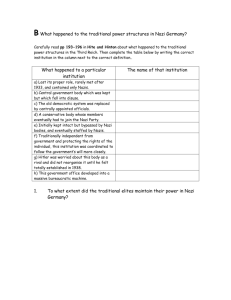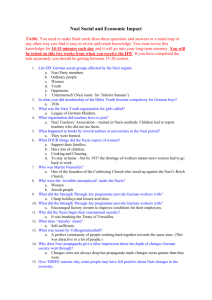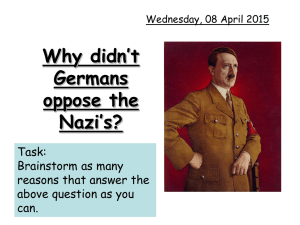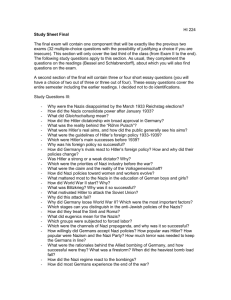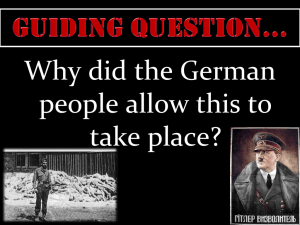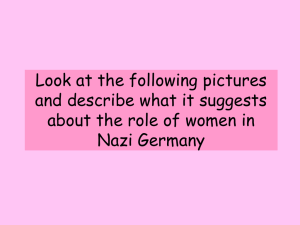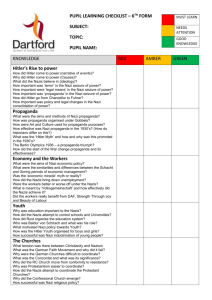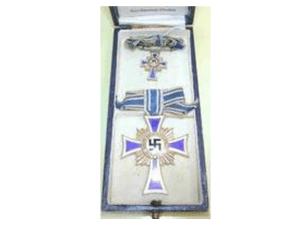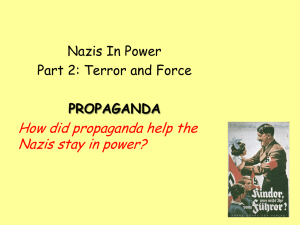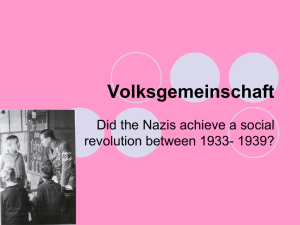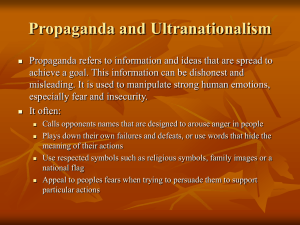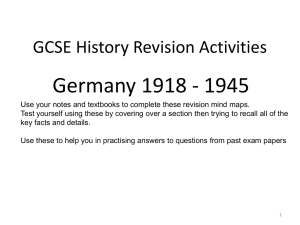Propaganda
advertisement
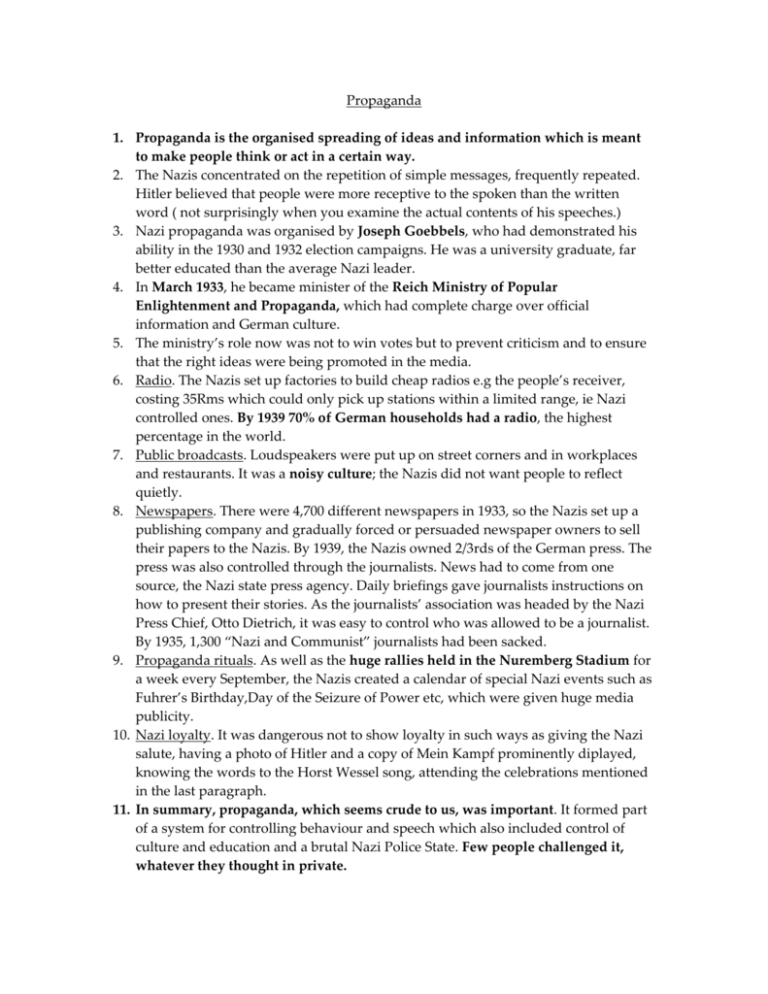
Propaganda 1. Propaganda is the organised spreading of ideas and information which is meant to make people think or act in a certain way. 2. The Nazis concentrated on the repetition of simple messages, frequently repeated. Hitler believed that people were more receptive to the spoken than the written word ( not surprisingly when you examine the actual contents of his speeches.) 3. Nazi propaganda was organised by Joseph Goebbels, who had demonstrated his ability in the 1930 and 1932 election campaigns. He was a university graduate, far better educated than the average Nazi leader. 4. In March 1933, he became minister of the Reich Ministry of Popular Enlightenment and Propaganda, which had complete charge over official information and German culture. 5. The ministry’s role now was not to win votes but to prevent criticism and to ensure that the right ideas were being promoted in the media. 6. Radio. The Nazis set up factories to build cheap radios e.g the people’s receiver, costing 35Rms which could only pick up stations within a limited range, ie Nazi controlled ones. By 1939 70% of German households had a radio, the highest percentage in the world. 7. Public broadcasts. Loudspeakers were put up on street corners and in workplaces and restaurants. It was a noisy culture; the Nazis did not want people to reflect quietly. 8. Newspapers. There were 4,700 different newspapers in 1933, so the Nazis set up a publishing company and gradually forced or persuaded newspaper owners to sell their papers to the Nazis. By 1939, the Nazis owned 2/3rds of the German press. The press was also controlled through the journalists. News had to come from one source, the Nazi state press agency. Daily briefings gave journalists instructions on how to present their stories. As the journalists’ association was headed by the Nazi Press Chief, Otto Dietrich, it was easy to control who was allowed to be a journalist. By 1935, 1,300 “Nazi and Communist” journalists had been sacked. 9. Propaganda rituals. As well as the huge rallies held in the Nuremberg Stadium for a week every September, the Nazis created a calendar of special Nazi events such as Fuhrer’s Birthday,Day of the Seizure of Power etc, which were given huge media publicity. 10. Nazi loyalty. It was dangerous not to show loyalty in such ways as giving the Nazi salute, having a photo of Hitler and a copy of Mein Kampf prominently diplayed, knowing the words to the Horst Wessel song, attending the celebrations mentioned in the last paragraph. 11. In summary, propaganda, which seems crude to us, was important. It formed part of a system for controlling behaviour and speech which also included control of culture and education and a brutal Nazi Police State. Few people challenged it, whatever they thought in private.
